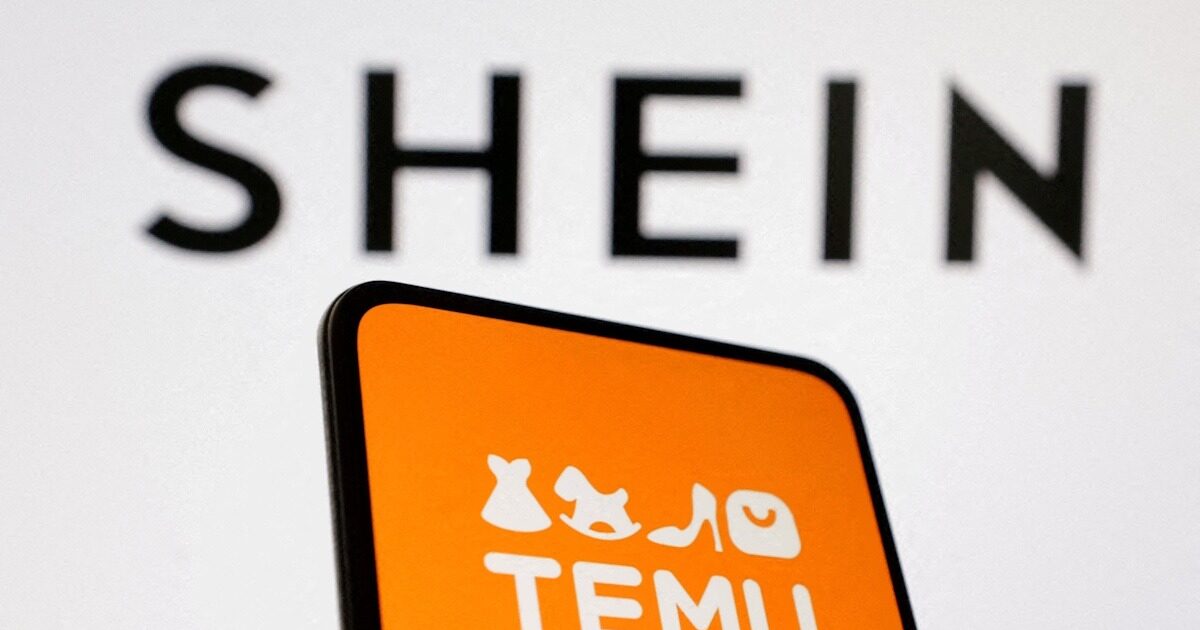They were seized yesterday (30.7.25) the USA their tariff exemptions for low -value low -value commercial missions (eg through AgoShein, Amazon). US President Donald Trump has ordered duties to be imposed on parcels worth up to $ 800 since August 29, 2025, the White House said.
So far, these missions of companies such as TEMU were excluded from duties due to the so -called de minimis rule. The global end of the special rule, which has announced Trump It comes much earlier than expected – and is likely to hit the businesses of retail and shipping companies. Change applies to any mission of goods, regardless of their value, country of origin or how they are transported, in accordance with the executive decree.
During the first six months, companies may choose between a single invoice per parcel or a tariff rate based on the value of the goods. However, the tariff rate in force for the respective export country will be permanently applied to the parcels.
Four million parcels a day recent
Chinese online retailers like Temu and Shein have benefited more than this rule in the past. They had put in place as a business authority to supply US consumers directly from the countries of production. This not only saved US storage costs, but also avoided paying duties.
The numbers show how big this business was recently: While US authorities recorded only about 134 million low -value parcels in 2025, the number recently reached almost 1.4 billion. According to the White House, the Customs and Border Protection Service is working out more than four million de minimis missions to the US each day, according to Handelsblatt.
However, Trump had already lifted the special rule for traditions from China and Hong Kong in May 2025. According to a Reuters news agency analysis, this led to significant price increases in Electronic Shein retailer. According to the analysis, between April 24 and July 22, a children’s t -shirt increased by about 68% and a 52% girl t -shirt.
Now, the whole business model is probably on the brink of collapse. With the global end of the de minimis rule, it will probably be no longer worth it for companies to carry their supply chains from China and Hong Kong to other Asian countries.
US consumers could expect “a series of sales” over the next 30 days, writes Aaron Rubin, Managing Director of the Logistics Shiphero Service Company, on the social network “X”. After all, companies are now trying to reduce their stocks abroad.
Amazon is highly dependent on China
Amazon, the world’s largest online retailer, is also influenced by change. More than 60% of the products that customers can order there come from third parties. They can use the company’s digital sales platform and receive a share of their sales in return. The company even undertakes the mission for some retailers.
In the US, Amazon depends particularly on Chinese retailers, who, according to previous estimates, make up about 50% of the sellers there. The abolition of their de minimis exemption has already hit hard, as home products and kitchen products from the People’s Republic, for example, is generally low value. Recently, as a result of Trump’s tariff policy, the administration was forced to raise the prices of more than 1,200 daily goods on average of 5.2%, as calculated by the Wall Street Journal.
Overall, however, the company could benefit, according to some analysts. With Temu and Shein, important competitors are eventually displaced from the market, Deutsche Bank writes in its recent analysis. Amazon already seems to benefit from it.
The shares of PDD Holdings, a TMU management company listed in Nasdaq, lost more than two percent on Wednesday. The shares of some transport companies also retreated. After all, they had recently benefited from a significant increase in the volume of missions. FedEx’s shares lost almost 4.6 percent, while UPS shares declined about four percent.
The rule is not expected to be removed before 2027
Trump has repeatedly complained that companies were using the de minimis rule to bypass tariffs. At the same time, he claimed that the sellers had used the exception to introduce illegal substances such as fentanyl in the country. His order, he said, aimed to close a “devastating gap” that allows the entry of “deadly synthetic opioids and other unsafe products” in the United States.
The budget bill recently passed by the US Congress, also known as “One Big Beautiful Bill”, has already envisioned a global end of the de minimis rule – though not before 2027. Trump’s regulation now prevents this.
However, travelers from the US will continue to be allowed to bring the country worth $ 200. In addition, individuals will continue to be allowed to receive $ 100 or less gifts without having to pay taxes applicable to each country.
